This article includes a list of references, related reading, or external links, but its sources remain unclear because it lacks inline citations .(July 2024) |
Irvin Stokes (born November 11, 1926) is an American jazz trumpeter.
This article includes a list of references, related reading, or external links, but its sources remain unclear because it lacks inline citations .(July 2024) |
Irvin Stokes (born November 11, 1926) is an American jazz trumpeter.
Stokes was born in Greensboro, North Carolina on November 11, 1926. He moved to New York City in 1947 and recorded with a Charlie Singleton sextet in 1949. Throughout the 1950s he worked in the big bands of Tiny Bradshaw, Duke Ellington, Mercer Ellington, Erskine Hawkins, Buddy Johnson, Andy Kirk, and Jimmie Lunceford. In 1959-60 he played in Austin Powell's ensemble, then went on to record with Bobby Donaldson and Lou Donaldson in the early 1960s.
Stokes was involved principally with Broadway musical bands in the 1970s such as Hair , though in 1978 he also played on the Thad Jones-Mel Lewis Orchestra's tour of Europe, and with Panama Francis at the end of the decade. His credits in the 1980s included George Kelly, Illinois Jacquet, Oliver Jackson, and the Count Basie Orchestra. Stokes was a regular performer alongside Spanky Davis at Doc Cheatham's Sunday brunch gig at the Sweet Basil Jazz Club, continuing in this role after Cheatham's death in 1997, when Chuck Folds took over. He also played with the Statesmen of Jazz late in the 1990s.

Edward Kennedy "Duke" Ellington was an American jazz pianist, composer, and leader of his eponymous jazz orchestra from 1923 through the rest of his life.
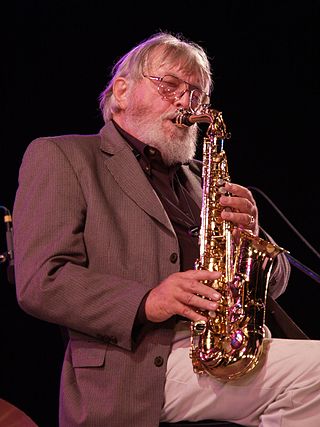
Clifford Everett "Bud" Shank Jr. was an American alto saxophonist and flautist. He rose to prominence in the early 1950s playing lead alto and flute in Stan Kenton's Innovations in Modern Music Orchestra and throughout the decade worked in various small jazz combos. He spent the 1960s as a first-call studio musician in Hollywood. In the 1970s and 1980s, he performed regularly with the L. A. Four. Shank ultimately abandoned the flute to focus exclusively on playing jazz on the alto saxophone. He also recorded on tenor and baritone sax. His most famous recording is probably the version of "Harlem Nocturne" used as the theme song in Mickey Spillane's Mike Hammer. He is also known for the soundtrack recordings with his group to the surfing films of Bruce Brown in the late 1950s and early 1960s, and for the alto flute solo on the song "California Dreamin'" recorded by The Mamas & the Papas in 1965.
James Wesley "Bubber" Miley was an American early jazz trumpet and cornet player, specializing in the use of the plunger mute.
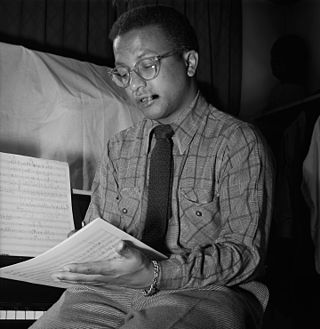
William Thomas Strayhorn was an American jazz composer, pianist, lyricist, and arranger who collaborated with bandleader and composer Duke Ellington for nearly three decades. His compositions include "Take the 'A' Train", "Chelsea Bridge", "A Flower Is a Lovesome Thing", and "Lush Life".

Charles Melvin "Cootie" Williams was an American jazz, jump blues, and rhythm and blues trumpeter.

James Blanton was an American jazz double bassist. Blanton is credited with being the originator of more complex pizzicato and arco bass solos in a jazz context than previous bassists. Nicknamed "Jimmie," Blanton's nickname is usually misspelled as "Jimmy," including by Duke Ellington.
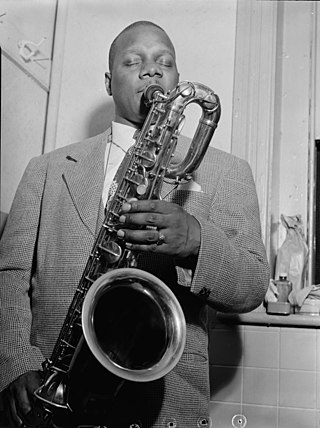
Harry Howell Carney was a jazz saxophonist and clarinettist who spent over four decades as a member of the Duke Ellington Orchestra. He played a variety of instruments, but primarily used the baritone saxophone, being a critical influence on the instrument in jazz.

Irving Harold Mills was a music publisher, musician, lyricist, and jazz promoter. He often used the pseudonyms Goody Goodwin and Joe Primrose.

Russell Keith Procope was an American clarinetist and alto saxophonist who was a member of the Duke Ellington orchestra.

Mercer Kennedy Ellington was an American musician, composer, and arranger. His father was Duke Ellington, whose band Mercer led for 20 years after his father's death.
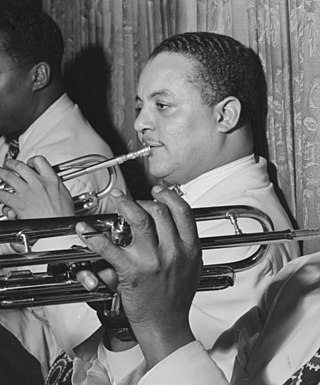
Harold "Shorty" Baker was an American jazz trumpeter.

Loren Schoenberg is a tenor saxophonist, conductor, educator, and jazz historian. He has won two Grammy Awards for Best Album Notes. He is the former Executive Director and currently Senior Scholar of the National Jazz Museum in Harlem.
George Sylvester "Red" Callender was an American string bass and tuba player. He is perhaps best known as a jazz musician, but worked with an array of pop, rock and vocal acts as a member of The Wrecking Crew, a group of first-call session musicians in Los Angeles. Callender also co-wrote the 1959 top-10 hit "Primrose Lane".

Irvin Mayfield Jr. is an American trumpeter, composer, bandleader and educator. On November 3, 2021, Mayfield was sentenced to 18 months in prison for defrauding the New Orleans public library system for over one million dollars.
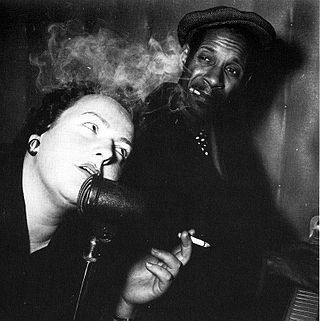
James Bryant Woode was an American jazz bassist. He played and/or recorded in bands with Flip Phillips, Sarah Vaughan, Ella Fitzgerald, Charlie Parker, Duke Ellington, Coleman Hawkins, Nat Pierce, Sidney Bechet, Billie Holiday, Jaki Byard, Earl Hines, Jimmy Witherspoon, Clark Terry and Miles Davis.
Matthew Gee was an American bebop trombonist.
Richard Gene Williams was an American jazz trumpeter.
Norris Turney was an American jazz flautist and saxophonist.
Richard Andrew Henderson was an American jazz alto saxophonist and arranger.
Earl Charles Barrington May was an American jazz bassist. He was "one of the most prodigious and prolific bassists of the postwar era".